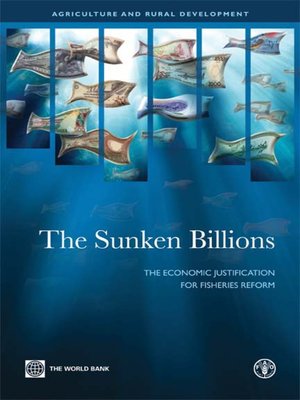The Sunken Billions
ebook ∣ The Economic Justification for Fisheries Reform · Agriculture and Rural Development
By World Bank

Sign up to save your library
With an OverDrive account, you can save your favorite libraries for at-a-glance information about availability. Find out more about OverDrive accounts.
Find this title in Libby, the library reading app by OverDrive.



Search for a digital library with this title
Title found at these libraries:
| Library Name | Distance |
|---|---|
| Loading... |
'The Sunken Billions: The Economic Justification for Fisheries Reform' shows the difference between the potential and actual net economic benefits from marine fisheries is about $50 billion per year, or some $2 trillion over the last three decades. If fish stocks were rebuilt, the current marine catch could be achieved with approximately half the current global fishing effort. This illustrates the massive overcapacity of the global fleet. The excess competition for the limited fish resources results in declining productivity, economic inefficiency, and depressed fisher incomes. The focus on the deteriorating biological health of world fisheries has tended to obscure their equally critical economic health. Achieving sustainable fisheries presents challenges not only of biology and ecology, but also of managing political and economic processes and replacing pernicious incentives with those that foster improved governance and responsible stewardship. Improved governance of marine fisheries could regain a substantial part of this annual economic loss and contribute to economic growth. Fisheries governance reform is a long-term process requiring political will and consensus vision, built through broad stakeholder dialogue. Reforms will require investment in good governance, including strengthening marine tenure systems and reducing illegal fishing and harmful subsidies. Realizing the potential economic benefits of fisheries means reducing fishing effort and capacity. To offset the associated social adjustment costs, successful reforms should provide for social safety nets and alternative economic opportunities for affected communities.







